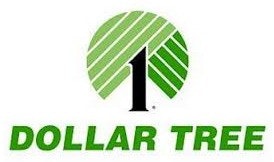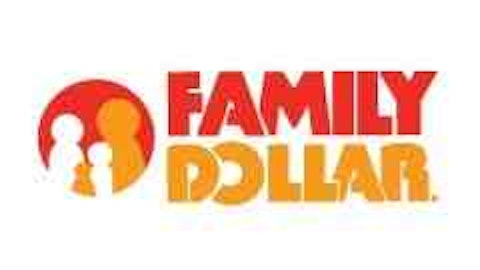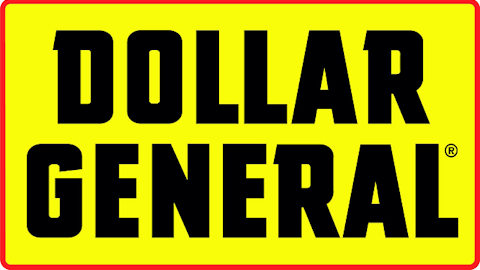If you’re you’re concerned about what’s taking place on Main Street eventually catching up to Wall Street, then you’re likely looking for a stock that has the potential to appreciate in a bear market environment.
Believe it or not, several stocks appreciated during the financial crisis of 2008/2009. And if a stock can appreciate in that environment, then it should be considered bulletproof. The three stocks covered below are all extraordinarily resilient, and they allow investors to sleep well at night — even if a black swan event tanks the market.
What are these mysterious and bulletproof investments?
They might not be exciting, but exciting stocks often lead to despair. Think of high-multiple stocks as being bipolar. The high might be unparalleled, but once the tide turns, it leads to prolonged pain. Boring stocks that make consistent progress are much wiser alternatives. And the dollar stores offer just that.
Investing in dollar stores today is like investing in Procter & Gamble decades ago. In other words, the potential gains are phenomenal. The dollar stores are also perfect fits for the current economic environment. Today’s shoppers want value, not luxury. Sure, the high-income consumer can still afford luxury, but that’s only a small percent of the population. The middle-income consumer is dealing with powerful headwinds including lower wages, increased taxes, high fuel prices, increased mortgage rates, and healthcare reform. And the low-income consumer has no choice but to shop for value.
Whether they realize it or not, individuals act as their own businesses. If revenue (income) declines and expenses increase, then they must look to cut costs somewhere to improve the bottom line, or to at least stay in the black. Therefore, instead of people shopping at traditional and independent retailers, they’re going to look for better value at places like Wal-Mart, Target, and the dollar stores.
A look at Dollar Tree

In the first quarter, Dollar Tree, Inc. (NASDAQ:DLTR) opened 94 new stores and closed just two stores. When a company opens more stores than it closes, it’s a bullish sign because it indicates confidence in future prospects. When a company opens 92 more stores than it closes, it’s incredibly bullish. Dollar Tree, Inc. (NASDAQ:DLTR) now has 763 stores throughout the United States and Canada.
Other bullish signs:
- Revenue and earnings have consistently improved on an annual basis
- Consistent buybacks
- Some insider buying (rare in today’s environment)
- Slight improvement in cash position
- Margin expansion
- Decline in administrative costs
For fiscal year 2013, management expects revenue of $7.81 billion to $7.97 billion and EPS of $2.61-$2.77.
The only real concern for Dollar Tree, Inc. (NASDAQ:DLTR) is that it’s growing too fast. However, it can simply close underperforming stores if necessary. The business model is a good one, and that’s what matters most. Actually, demand is so high that Dollar Tree, Inc. (NASDAQ:DLTR) sometimes has trouble restocking shelves in time. This has led to some customer discontent, but they’ll get over it. These consumers aren’t going to let one or two mishaps lead them to paying three times the price for an item at a different store. It’s all about the money.
Other dollar store options
Dollar General Corp. (NYSE:DG) and Family Dollar Stores, Inc. (NYSE:FDO) have also steadily improved revenue and earnings on an annual basis. Both companies, in addition to Dollar Tree, Inc. (NASDAQ:DLTR), sport debt-to-equity ratios below the industry average, so debt isn’t a concern for any of them.
Only Family Dollar Stores, Inc. (NYSE:FDO) pays a dividend, currently yielding 1.70%. This is a nice bonus, but its ROE of 32.20% isn’t quite as high as Dollar Tree, Inc. (NASDAQ:DLTR) at 39.54%. Furthermore, Dollar Tree offers the highest profit margin of the three at 8.45%. That’s an impressive profit margin for company selling most products at $1. Dollar General Corp. (NYSE:DG) owns a profit margin of 5.87%, and Family Dollar’s profit margin is 4.24% — both are still impressive for the industry.
If you’re wondering about historical stock performance, the chart below compares these three companies over the past five years:
Yes, Dollar Tree is the most impressive. And yes, these stocks also perform well in bull markets.
We have established that Dollar Tree, Inc. (NASDAQ:DLTR) is a strong option, but Dollar General and Family Dollar Stores, Inc. (NYSE:FDO) are no slouches, either. Both are trading at 17 times earnings, making them fairly valued.
Dollar General Corp. (NYSE:DG) operates 10,700 stores across the country, giving it more locations than any other retailer. Needless to say, exposure isn’t a concern. Dollar General also consistently buys back shares, which is bullish for investors as it decreases the share count. However, Dollar General Corp. (NYSE:DG) recently lowered guidance, which potentially makes it the weakest option of this group.
Family Dollar Stores, Inc. (NYSE:FDO) is the smallest of the three retailers, but it’s also extremely efficient. It’s strategy is simply to build small stores in highly populated areas. This game plan has led to great success over the years, and there is no reason for the trend to stop.
Conclusion
It would be difficult to go wrong with any of these investments over the long haul. While short-term fluctuations are possible, any downward stock momentum can be looked at as an opportunity to add to a position. Based on fundamentals and past performance, Dollar Tree, Inc. (NASDAQ:DLTR) looks to be the best of the bunch.
Dan Moskowitz has no position in any stocks mentioned. The Motley Fool has no position in any of the stocks mentioned.
The article Looking for a Safe Long-Term Investment? originally appeared on Fool.com.
Dan is a member of The Motley Fool Blog Network — entries represent the personal opinion of the blogger and are not formally edited.
Copyright © 1995 – 2013 The Motley Fool, LLC. All rights reserved. The Motley Fool has a disclosure policy.





